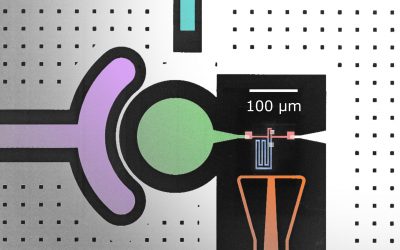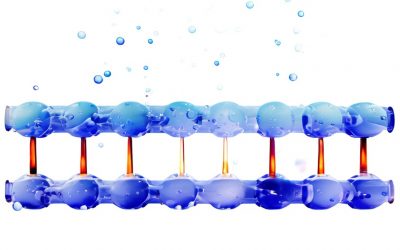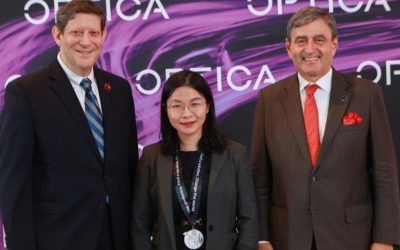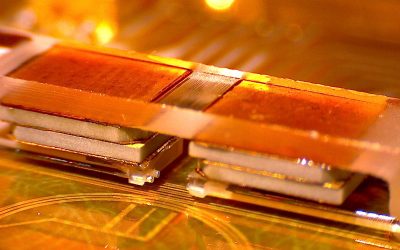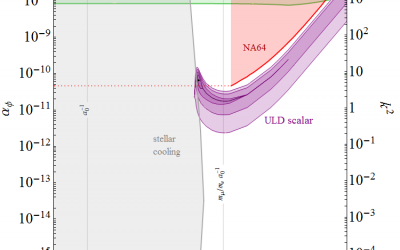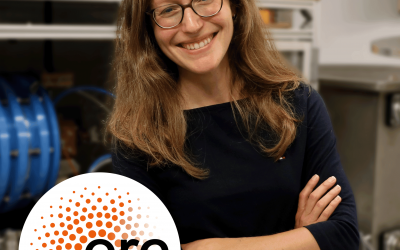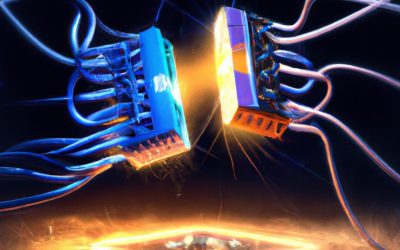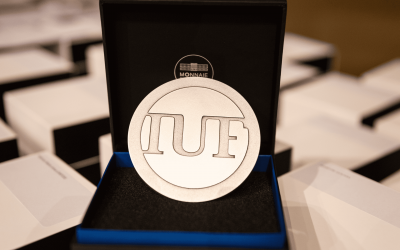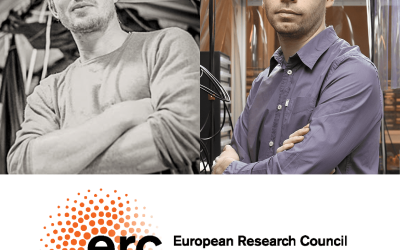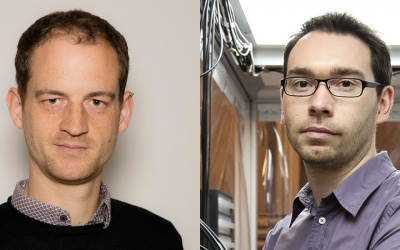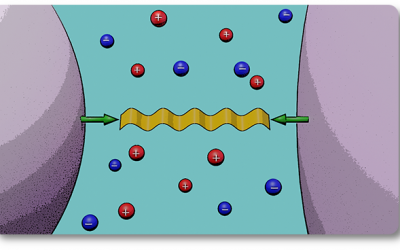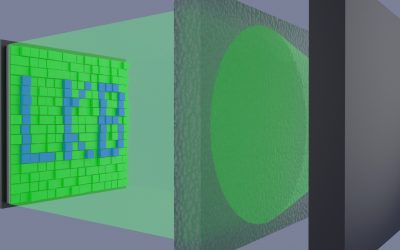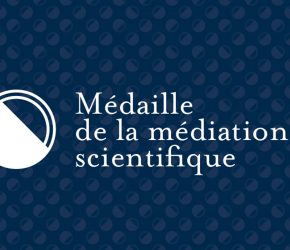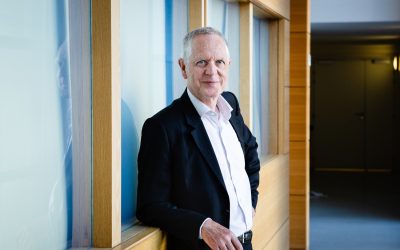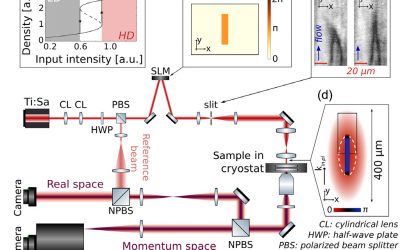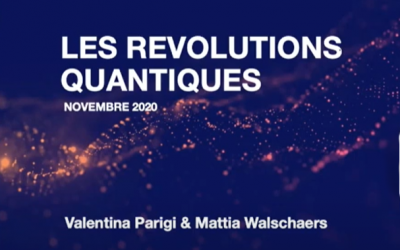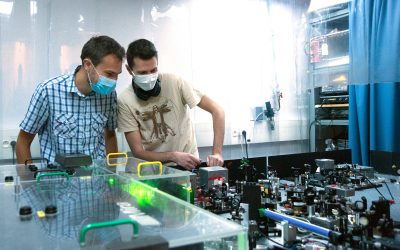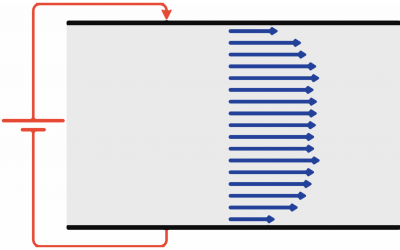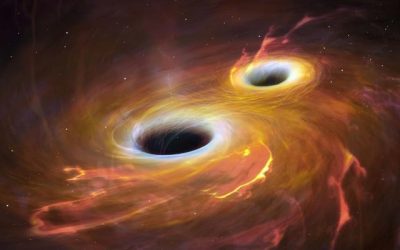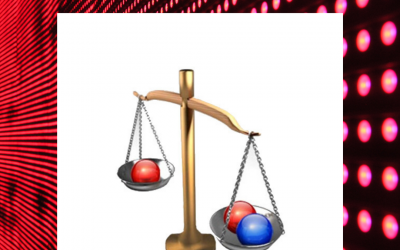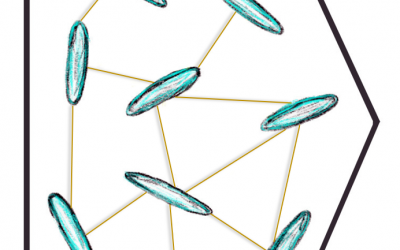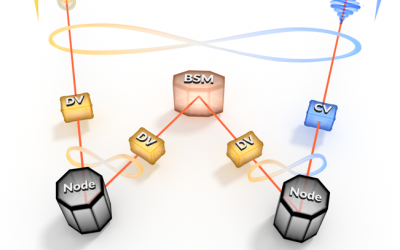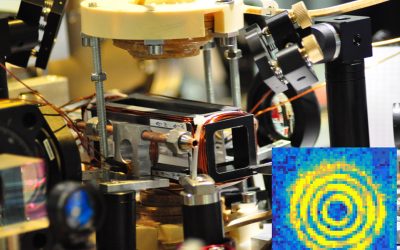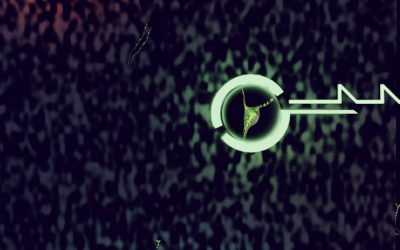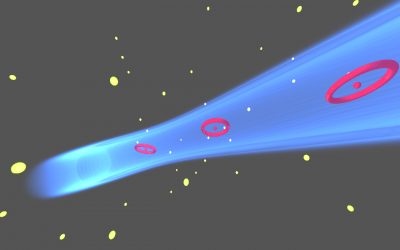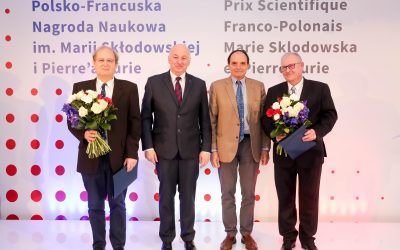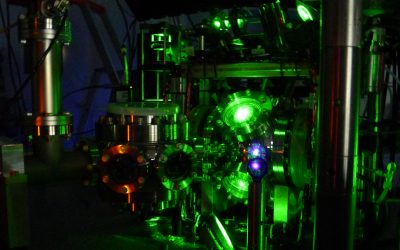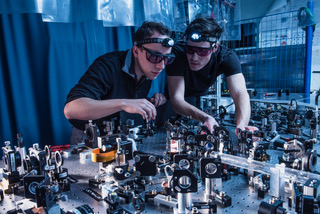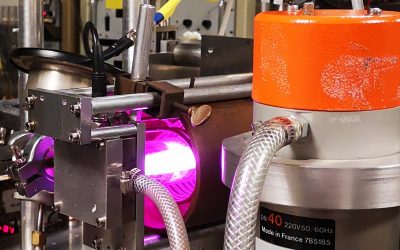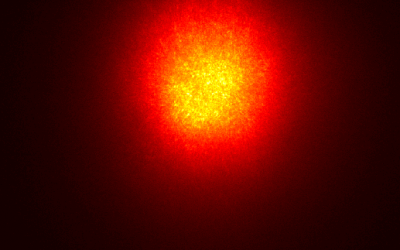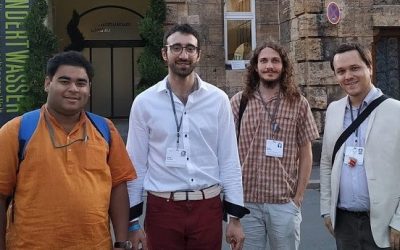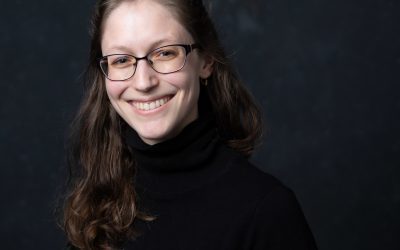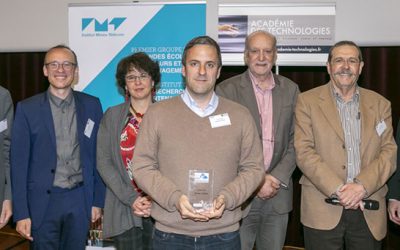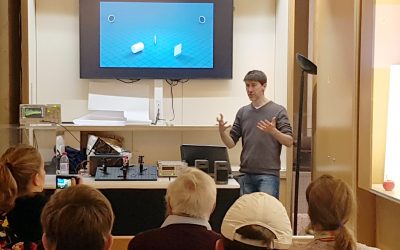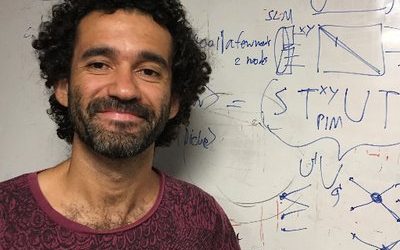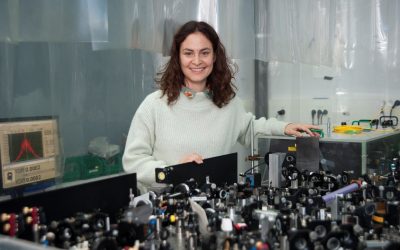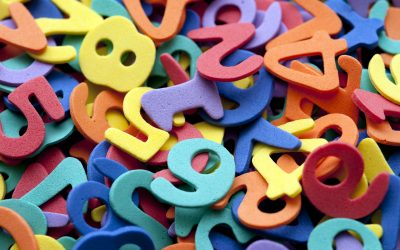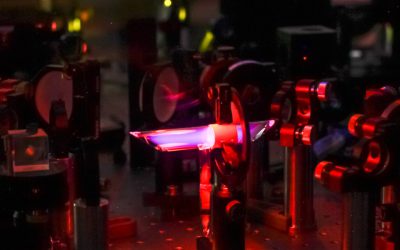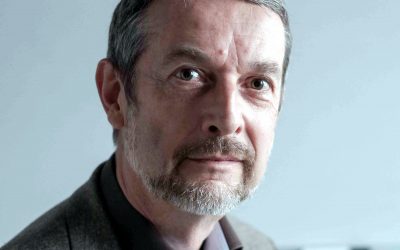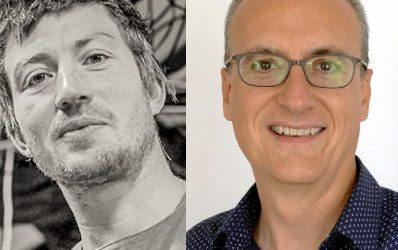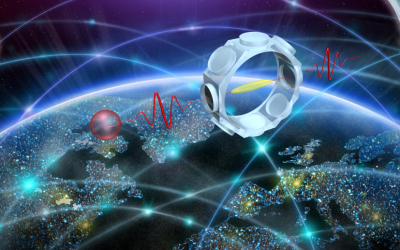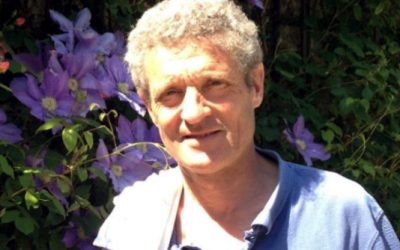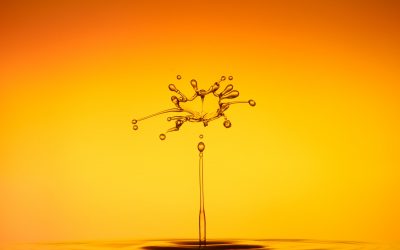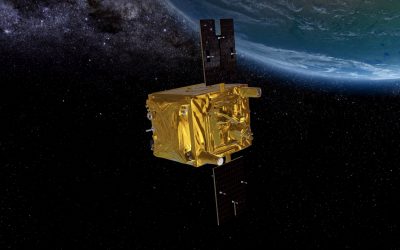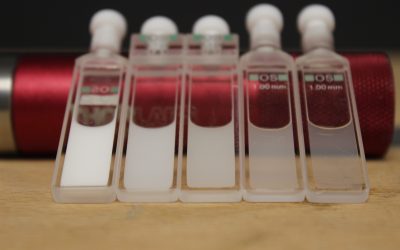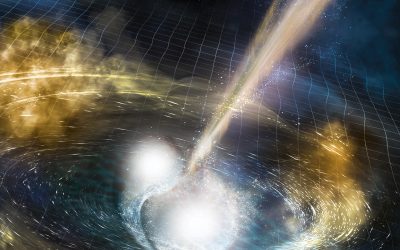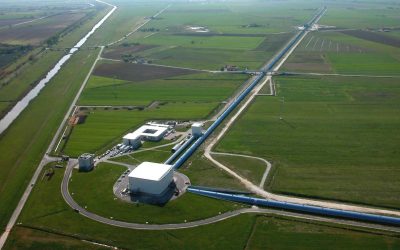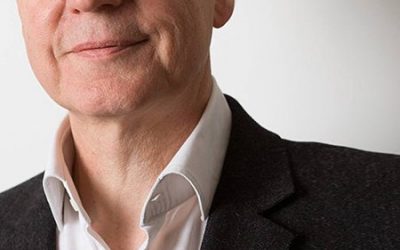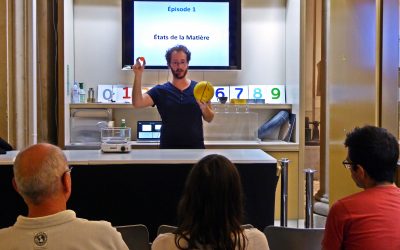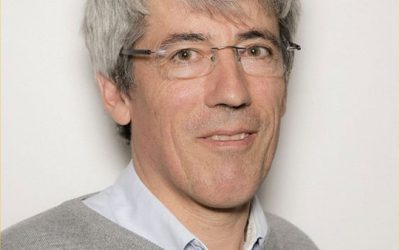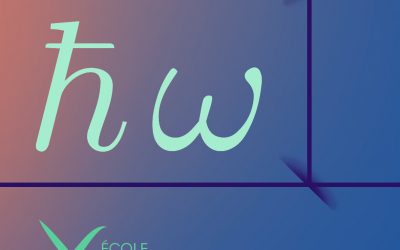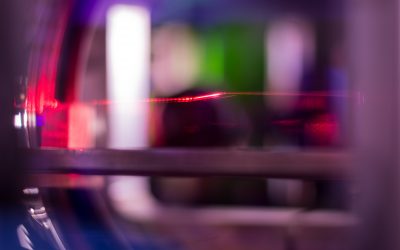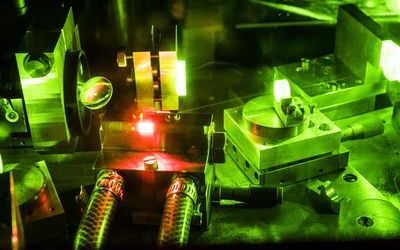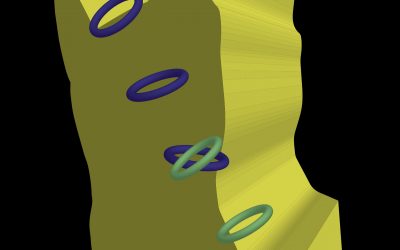All the news
A superconducting qubit used as an ultra-sensitive sensor in the radio-frequency domain
A LKB team has demonstrated an unprecedentedly low-frequency superconducting “fluxonium” qubit, which could facilitate experiments that probe macroscopic quantum phenomena.
Universal Casimir attraction between filaments at the cell level
Numerical simulations reveal that long-range interaction between objects in an ionic fluid, via electromagnetic field fluctuations, plays an important role for filamentary objects, with implications for our understanding of the self-organization of cellular structures.
Fei Xia wins Optica Foundation Challenge to develop smart microscope
We are at the very beginning of this field of imaging: the intersection of optics, biotechnology, and information theory. It’s exciting. My goal is for the computational spectral fluorescence imager to offer a practical and cost-effective solution for improving diagnostic quality and driv-ing progress in global health
Long-lived metrological spin squeezing
Atomic clocks and sensors are among the most precise measurement instruments in the world, but they can still be improved. Indeed, all of them so far use uncorrelated atoms, creating statistical noise known as quantum projection noise. This noise limits their...
The adjustment of fundamental constants: a tool for new physics searches
The values of fundamental constants such as the fine-structure constant, the mass of the electron or proton, the Rydberg constant, are determined by a variety of high-precision experiments: atomic spectroscopy or interferometry, mass spectrometry, g-factor...
Nancy Paul awarded ERC Starting Grant 2023!
Nancy Paul, lauréate d'une ERC Starting Grant 2023 ! © Timothe Paire, CNRS Nancy Paul, a CNRS researcher working in the Metrology and Fundamental Tests group, has been awarded a prestigious ERC Starting Grant. Nancy’s project, PAX (antiProtonic Atom X-ray...
Shining new light on photonic quantum computers
What make a quantum computer different from a normal -often called “classical”- computer? For a user, the most relevant answer to this question is undoubtably that a quantum computer should be able to solve some very specific problems much...
Four LKB members appointed to the IUF for 2023
The Institut Universitaire de France has named four members of the Kastler Brossel Laboratory in the class of 2023. This prestigious 5-year appointment recognizes the high quality of their research work. Quentin Glorieux, Associate Professor (Sorbonne Université), has...
Two LKB members win ERC 2022 grants
Julien Laurat and Quention Glorieux, two members of the Laboratoire Kastler Brossel, have been awarded prestigious ERC grants. Julien Laurat, a researcher in the LKB's Quantum Optics team, has just been awarded an ERC Advanced grant for his NanoAtom (Quantum Optical...
TWO LKB MEMBERS APPOINTED TO THE IUF
L’Institut Universitaire de France has named two members of the LKB for the class of 2022. They are Sylvain Nascimbene, associate professor (École Normale Supérieure), appointed junior member, and Julien Laurat, professor (Sorbonne University), appointed senior...
A surprisingly large Casimir force at biophysical interfaces
Biophysical interfaces involve electrolytic media such as salt water where Debye screening due to moving ions is extremely effective. It was therefore commonly believed that interactions induced by electromagnetic fluctuations could not give rise to...
A mosaic made of spins
During the past decades, scientists have tried solving problems that take a long time with conventional computers. Recently, it has been demonstrated that quite a few of these problems can be written as a variation of what is called an Ising spin...
Jean-Michel Courty, one of the recipients of the first CNRS Medal for Scientific Mediation
The CNRS Medal for Scientific Mediation rewards men and women, scientists or research support staff, for their actions, whether one-off or ongoing, personal or collective, to promote science in society.
Jean Dalibard receives the 2021 CNRS gold medal
Jean Dalibard’s research is at the heart of quantum physics: he is internationally recognized as one of the leaders in the field of quantum gases, particularly Bose-Einstein condensates, a particular state of matter at very low temperatures.
Dark-soliton molecules in a polariton superfluid
Experiments performed the Quantum Optics team show that dark solitons in a quantum fluid of polariton quasiparticles can bind together to form a soliton molecule
Quantum fluctuations of light make Virgo mirrors jitter
Un effet quantique mis en évidence pour la première fois dans les détecteurs d’ondes gravitationnelles Advanced Virgo et Advanced LIGO
Bringing quantum revolutions to the classroom
Media and even politics regularly talk about quantum technologies as one of the big upcoming innovations. It is even said that we are going through a quantum revolution. But did you know that most modern technologies that we use on a daily basis already rely on...
Once upon a time there were modes and states in quantum optics
Mise à jour d’une propriété de topologie non triviale des états quantiques
Probing chiral edge dynamics and bulk topology of a synthetic Hall system
The Bose-Einstein condensate team has studied the dynamics of dysprosium atoms manipulated by lasers, aiming to simulate the behavior of electrons in a magnetic field, which feature a quantum Hall effect. We used two-photon transitions to couple the atomic motion and...
Enigmatic black holes revealed by gravitational waves
LIGO and Virgo Gravitational Wave Detectors’ biggest catch to date on the board
Fundamental constants: the molecular hydrogen ion joins the play
A collaboration between researchers from Vrije Universiteit, LKB and the Joint Institute for Nuclear Research determined the proton-electron mass ratio with 11 significant digits !
Squeezing multimode quantum states to enhance sensor networks
Researchers from LKB and CNR (Florence, Italy) have developed a theoretical method that characterizes the squeezing of multiple quantum observables
Connecting the quantum internet
Researchers at the Kastler Brossel Laboratory in Paris have succeeded in implementing a novel “hybrid” entanglement swapping protocol, bringing within reach the connection of disparate platforms in a future, heterogeneously-structured, quantum internet.
TORYD, the ERC Consolidator Grant awarded to Jérôme Beugnon
New ERC Consolidator grant
Recording neuron in actions at depth by unmixing scattered light
A new article from the Complex Media Optics team published in Nature photonics
Laser light traps giant atoms
For the first time, physicists of Kastler Brossel Laboratory have been able to use light to trap giant atoms, so-called circular Rydberg atoms.
Maria Skłodowska and Pierre Curie prize reward Dominique Delande and Jakub Zakrzewski
The Maria Skłodowska and Pierre Curie Polish–French Scientific Award is a new joint initiative of the Foundation for Polish Science, the French Ministry of Higher Education, Research and Innovation (MESRI), and the French Academy of Sciences. The aim of the...
Valentina Parigi awarded by a CNRS Bronze Medal
Valentina Parigi, teacher-researcher in the Quantum Optics team of the Kastler Brossel Laboratory in Jussieu (Sorbonne University/CNRS/ENS-PSL/Collège de France), has just been awarded with a bronze medal of the CNRS. This award honours the early work of researchers...
Anomalous decay of coherence in a dissipative many-body system
Bose-Einstein condensates team of our lab study the loss of spatial coherence of bosonic atoms in an optical lattice when subjected to a controlled amount of spontaneous emission. Ytterbium atoms are promoted to an excited state by a near-resonant laser and decay...
Multicoloured quantum light goes non-Gaussian
A frequency comb as a platform for quantum information processing
François nez receives the Félix Robin 2019 award
François Nez receives a SFP award
Noninvasive light focusing in scattering media using speckle variance optimization
Optimizing the variance of the fluorescent signal
69e Lindau Nobel Laureate meeting
Nanofibre and cold atoms: a new quantum platform
The integration of cold atoms with nanoscopic waveguides has sparked considerable interest in recent years, giving rise to a rapidly expanding field of research: quantum electrodynamics in waveguides. Such platforms should allow easier integration and better...
Nancy Paul-Hupin, Winner of the Daniel Guinier Award 2018
SFP announces its 2018 Young Investigators Award
Sylvain Gigan receives the 2019 Jerphagnon Award
On May 15, 2019, during the Rendez-vous optique photonique, the Jean Jerphagnon prize was awarded to Sylvain Gigan, Professor at Sorbonne University and head of the Optical Imaging and Applications to complex and Biological media team at LKB. This prize is intended to...
Gravitational waves at the Palais de la découverte
The animation “1 chercheur-e 1 manip” explores the detection of gravitational waves
An Algorithm from Netflix Challenge to Speed Up Biological Imaging?
Record-fast speeds make spontaneous Raman spectroscopy more practical for biomedical applications
Valentina Parigi, recipient of the ERC Consolidator Grant
COQCOoN project
High-precision calculations in quantum statistical physics using a divergent sum
Theorists from LKB and LPS have developped a new method for computing properties of many fermions that interact strongly. The first results agree with experimental measurements on ultracold atomic gases. The development of such a method is important for several...
Liquid light in atomic vapors
A new experimental platform to study “liquid light”
Launch of the Flagship on quantum technologies and results of the first call for proposals
Quantum Flagship is a European initiative to develop quantum technologies in Europe. It was officially inaugurated at a ceremony on 29 October 2018 in Vienna, Austria. This programme is already one of the most ambitious in the European Union, with a budget of €1...
Claude Fabre, laureate of the “Grand Prix Léon Brillouin”
The SFO rewards Claude Fabre for all his research
Two LKB members appointed to the IUF
Quentin Glorieux et Alberto Bramati
Record-breaking efficiency for secure quantum memory storage
A record efficiency of 70%
Christophe Salomon is elected member of Sciences academy
Christophe Salomon, director of research at CNRS, was elected in December 2017 member of Sciences academy (Paris, France), in the physics section. He is a member of the Kastler Brossel Laboratory, head of the Ultracold Fermi Gases team. Christophe Salomon...
Phonon-roton coupling in liquid helium and in superfluid Fermi gases
Liquid helium 4 is the first physical system that has led to the observation of the fascinating macroscopic quantum phenomenon that is superfluidity. Although its superfluid phase has been studied extensively for almost a century, it still exhibits some fundamental...
First results of the MICROSCOPE satellite confirm the validity of the equivalence principle at an unprecedented precision
First results of the MICROSCOPE satellite of CNES, equipped with ONERA accelerometers, show with an improved precision that bodies fall in a universal way in vacuum[1]. This is a new confirmation of general relativity, the theory proposed one century ago by Albert...
Experimental demonstration of an invariance property of waves in complex media
We know that light, and a wave in general, propagates in straight lines in homogeneous transparent media. If the medium is perturbated, however, the light is deviated. Similarly, clouds, made of small droplets of water in suspension, appears milky, since every...
Gravitational Waves provide first light on a Neutron Star Merger
First observation of a Binary Neutron Star Merger
Gravitational Waves: First Detection with Triple Detectors LIGO and Virgo
Advanced Virgo allows significantly greater sky localisation of astrophysical sources of gravitational waves
Jean Dalibard receives the BEC award 2017
Bose-Einstein Condensation biennial
Science in motion
Science in motion with Tarik Yefsah
Michel Brune awarded the Three Physicists Prize 2017
Michel Brune
A new regime of sound attenuation in a superfluid
Sound attenuation in a superfluid
A new MOOC on quantum optics
Alain Aspect and Michel Brune
A tiny mirror – Physicists reflect light with only 2000 atoms
In the September 23th issue of the Physical Review Letters, Prof. Julien Laurat and his team report they have managed to realize an efficient mirror constituted of only 2000 atoms.
After the proton, now the deuteron
Again, the “deuteron radius” is smaller than expected anfd in good agreement with the “proton radius” deduced from muonic hydrogen spectroscopy, thus reinforcing the “proton radius puzzle”.
Schrödinger cat states
Des physiciens viennent de réaliser un électromètre ultrasensible qui repose sur l’utilisation d’atomes excités portés dans une superposition d’états de type “chat de Schrödinger.”

